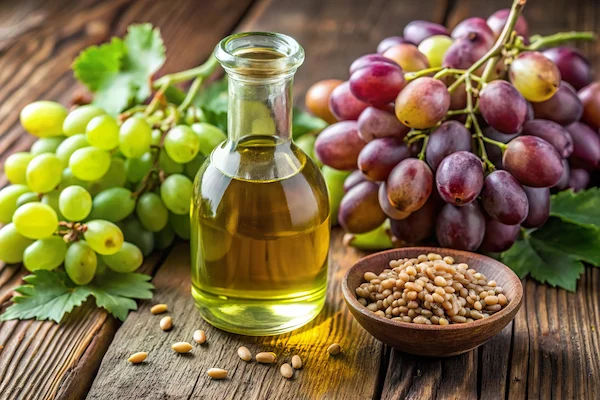Ways To Reduce Uric Acid Naturally With Home Remedies
Know about the ways to reduce uric acid, what is the cause, dietary strategies to lower the uric acid level and potent home remedies to reduce the uric acid level.

Written by Dr. Rohinipriyanka Pondugula
Reviewed by Dr. Dhankecha Mayank Dineshbhai MBBS
Last updated on 13th Jan, 2026

Introduction
That sudden, intense throbbing in your big toe, searing, red, and swollen, is often the unmistakable signature of high uric acid. This painful condition, known as gout, is caused by an excess of uric acid crystallising in your joints. While medication is sometimes necessary, many are turning to natural, holistic approaches to manage their levels effectively.
This comprehensive guide will walk you through lifestyle tweaks and powerful home remedies, the fruits you should eat, to the drinks you should avoid, you can use to reduce uric acid naturally and reclaim your comfort and health.
Understanding Uric Acid and Hyperuricemia
Before we dive into the solutions, it's crucial to understand the problem. Uric acid isn't inherently bad; it's a normal waste product created when your body breaks down purines—substances found in your own cells and in certain foods.
Consult a Nutritionist for Personalised Advice
What Causes High Uric Acid Levels?
Your kidneys typically filter uric acid out of your blood and excrete it through urine. Problems arise when your body produces too much uric acid or your kidneys excrete too little. This leads to a buildup in the bloodstream, a condition called hyperuricemia. Primary causes include:
Diet: Consuming purine-rich foods and beverages.
Obesity: A Higher body fat percentage can increase uric acid production and reduce its excretion.
Medical Conditions: Conditions like untreated hypertension, diabetes, and kidney disease can impair kidney function.
Genetics: A family history of gout can predispose you to it.
Certain Medications: Diuretics and drugs for hypertension can elevate levels.
Dietary Strategies to Lower Uric Acid
The most impactful changes you can make start on your plate. Adopting a low purine diet is the cornerstone of natural uric acid management.
Foods to Embrace: Your Uric Acid-Lowering Arsenal
Incorporate these foods regularly to help your body manage uric acid more effectively.
1. Cherries and Berries
Multiple studies, including one published in Arthritis & Rheumatism, have shown that consuming cherries is associated with a 35-45% lower risk of gout attacks. The anthocyanins in cherries possess strong anti-inflammatory and antioxidant properties that help reduce uric acid levels and alleviate gout pain. Aim for a half-cup serving daily, whether fresh, frozen, or as unsweetened juice.
2. High-Vitamin C Foods
Vitamin C is a potent tool. Research indicates it can help the kidneys remove more uric acid from the body. A large-scale study found that vitamin C supplementation significantly reduced serum uric acid levels. Incorporate citrus fruits (oranges, grapefruits), kiwi, strawberries, bell peppers, and broccoli into your diet. A simple glass of lemon water each morning is an excellent habit.
3. Low-Fat Dairy Products
Milk, yoghurt, and cheese have been found to have a uricosuric effect (promoting excretion of uric acid). The proteins in dairy, casein, and lactalbumin, appear to help lower uric acid concentrations. Opt for low-fat or skim varieties, as high-fat dairy can be counterproductive.
Foods to Avoid or Limit
Knowing what to avoid is just as important as knowing what to eat.
1. High-Purine Foods
Organ Meats: Liver, kidneys, sweetbreads.
Certain Seafood: Anchovies, sardines, mussels, scallops, trout, tuna.
Red Meat: Beef, lamb, pork.
Game Meals: Venison and other wild game.
2. Sugary Drinks and Fructose
This is a critical and often overlooked factor. Fructose is the only carbohydrate known to directly increase uric acid production. Avoid sodas, fruit juices packed with added sugar, and other beverages sweetened with high-fructose corn syrup.
3. Alcohol
Alcohol, particularly beer, is a double whammy. It not only increases uric acid production but also impairs its excretion. Beer is especially high in purines. If you choose to drink, do so in extreme moderation and opt for wine, which has a less dramatic effect.
The Power of Hydration
This cannot be overstated. Staying hydrated is one of the simplest and most effective ways to prevent gout attacks and lower uric acid. When you are well-hydrated, you dilute the uric acid in your blood and, most importantly, help your kidneys flush it out more efficiently. Dehydration is a major trigger for gout flares.
How Much Water Should You Drink?
Aim for 8-10 glasses (about 2-2.5 litres) of fluid daily, primarily from water. Herbal teas and seltzer water without added sugar also count. A good rule of thumb is to drink enough so that your urine is light yellow or clear.
Lifestyle Modifications for Long-Term Control
Diet works best when paired with healthy lifestyle habits that support overall metabolic health.
1. Maintain a Healthy Weight
Obesity is a significant risk factor for hyperuricemia. Losing weight slowly and steadily can dramatically reduce uric acid levels. However, caution is key: avoid crash dieting or fasting, as rapid weight loss can temporarily spike uric acid levels and trigger a gout attack.
2. Incorporate Regular, Low-Impact Exercise
Regular physical activity helps maintain a healthy weight and improves overall metabolic function. Opt for low-impact exercises like swimming, cycling, and walking, which are easier on sensitive joints than high-impact activities like running.
3. Manage Stress
Chronic stress can contribute to inflammation throughout the body. Practices like yoga, meditation, deep breathing exercises, and ensuring adequate sleep can help manage stress levels, which may indirectly help in managing uric acid.
Potent Home Remedies and Supplements
Beyond everyday food, several specific natural remedies have shown promise.
Apple Cider Vinegar
A staple in home remedy kits, raw, unfiltered apple cider vinegar (ACV) is believed to help make the body more alkaline and provide anti-inflammatory benefits. While more research is needed, many swear by it. How to use: Mix one tablespoon in a large glass of water and drink once or twice daily.
Celery and Celery Seed
Celery and its seeds are popular in traditional medicine for treating inflammation and gout. They are thought to have diuretic properties, helping to flush uric acid from the body. You can juice celery stalks, snack on them, or take celery seed extract supplements.
Conclusion: A Natural Path to Balance
Managing uric acid is not about a single magic bullet but about adopting a consistent, holistic approach to your health. By understanding the triggers, like high-purine foods, sugary drinks, and alcohol, and empowering yourself with powerful allies like hydration, vitamin C, and cherries, you can significantly influence your body's uric acid balance. These natural remedies for gout and high uric acid work in synergy with your body's processes, supporting your kidneys and reducing inflammation. If you are experiencing a severe gout attack or have chronically high levels, it is essential to consult a healthcare provider.
Consult a Nutritionist for Personalised Advice
Consult a Nutritionist for Personalised Advice
Mrs Sneha P V
Nutritionist
10 Years • Master of science in Food and Nutrition
Bengaluru
Apollo Clinic, Sarjapur Road, Bengaluru

Mr Aritra Khan
Dietician
16 Years • PG Diploma in Clinical Nutrition,Doctorate in Public Health & Community Nutrition, Post Doctorate Fellowship in Functional Medicine & Critical Care Nutrition
Kolkata
Samaritan Clinic, Kolkata
(250+ Patients)
Ms. Bhavana Shetty
Dietician
7 Years • DDHN & Masters in Clinical Nutrition & Dietetics
Bangalore
Apollo Sugar Clinic, Seetha circle bangalore, Bangalore
Dr. Sasikamalam
General Practitioner
1 Years • MBBS
COIMBATORE
Apollo Sugar Clinic Coimbatore, COIMBATORE
Dr Sumanth R
General Physician
2 Years • MBBS
Bengaluru
PRESTIGE SHANTHINIKETAN - SOCIETY CLINIC, Bengaluru




.webp)